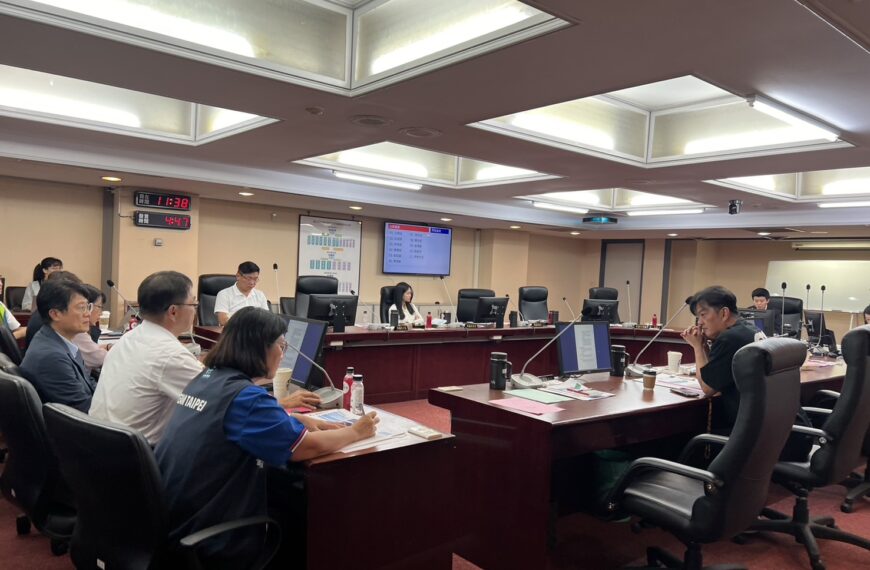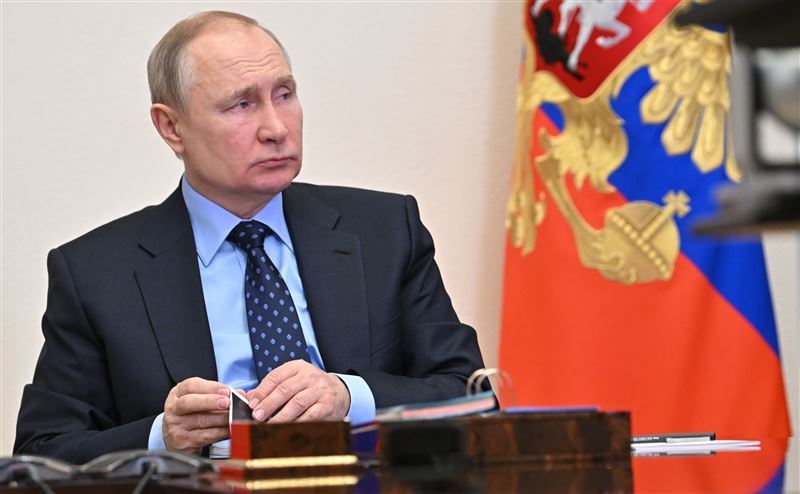CLEAN BENEFIT:From 2016 to last year, air pollution attributed to Taipower’s thermal plants fell 65 percent, while carbon emissions dropped 6.79 percent, the premier said
By Hsieh Chun-lin and Jonathan Chin / Staff reporter, with staff writer and CNA
The government would keep an open mind about nuclear energy if issues of safety, effective radioactive waste disposal and public trust can be resolved, Premier Cho Jung-tai (卓榮泰) said yesterday.
During a briefing at the legislature on the nation’s energy situation and electricity prices, Cho said the government remains open to exploring new energy technologies, including nuclear power.
The Cabinet has ordered the Ministry of Economic Affairs and Taiwan Power Co (Taipower, 台電) to retain nuclear power-qualified personnel to keep the government’s options open and handle nuclear waste disposal, he said.
However, the No. 2 reactor of the Ma-anshan Nuclear Power Plant in Pingtung County — the nation’s only operational reactor — must be decommissioned in May next year when its license expires, he said, citing the Nuclear Reactor Facilities Regulation Act (核子反應器設施管制法).
The government must be able to guarantee safety and a place to dispose of nuclear waste before building new nuclear facilities, as Taiwan proper is a small island with a high population density on an active geologic fault line, he said.
Any nuclear energy policy must also have public support, Cho added.
Taipower and private entities are building gas-powered plants that can be quickly started or turned off as an interim solution before the nation achieves a renewables-based energy structure, he said.
New gas-fired plants are expected to add 17.86 gigawatts to the nation’s energy capacity by 2036, enough to meet demand, assuming the central and local governments give Taipower their support, Cho said.
The government is working to stabilize renewable power supply by building pumped-storage hydroelectric systems and investing in battery technology, he said.
Last year, renewables accounted for 17.96 megawatts (MW) of the nation’s total capacity, up 2.8 times from the 4.73MW in 2016, while generation increased to 26.87 megawatt-hours (MWh) from 12.73MWh in the same period, Cho said.
Taiwan’s energy mix is 40 percent coal-fired, 41.5 percent gas-fired, 5.4 percent nuclear and 10.5 percent renewable, which includes 5.2 percent solar power and 2.6 percent wind power, showing an increase in renewables and a drop in coal, he said.
Air pollution attributed to Taipower’s thermal plants fell 65 percent and carbon emissions dropped 6.79 percent from 2016 to last year as part of the first phase of the nation’s energy transition, he said.
Taiwan has not produced nuclear power since last week’s shutdown of the Ma-anshan plant’s No. 2 reactor for its 41-day scheduled maintenance, Cho said.
The reactor’s output was equivalent to 3.4 percent of Taipower’s total energy output, a drop that was made possible by starting gas-fired units, he said, adding that renewables would be used to fill the gap in the long term.
On Tuesday last week, Taipower’s energy structure was 33.2 percent coal, 49.5 percent gas, 7.3 percent wind and 5.9 percent solar, while its post-nuclear energy structure is projected to be 52 percent gas, 29.6 percent coal and 16.3 percent renewables, he said.
Democratic Progressive Party Legislator Chiu Chih-wei (邱志偉) asked Cho if the preconditions of safety, effective disposal and trust imposed an unreasonably high threshold for developing nuclear power.
He also asked the premier whether NT$200 billion (US$6.23 billion) in proposed subsidies for Taipower this year and next year were intended to offset a canceled increase in electricity rates for residential users, and if the company would go bankrupt without that help.
Cho said that breakthroughs in promising fields of nuclear energy cannot be anticipated or measured ahead of time, and the government would have a better sense of the issue in 2030.
Considering public opinion of proposals to build new nuclear plants, the most likely options are to wait for a potentially safe technology to be invented or delay the Ma-anshan plant’s shutdown, he said.
The Cabinet must implement the nation’s laws as they were written and it can make no statement on changes to the law that have not yet occurred, he added.
Chinese Nationalist Party (KMT) Chairman Eric Chu’s (朱立倫) stated objection to the Taipower subsidies likely means the opposition party — which essentially commands a majority in the legislature — would vote against funding the company, the premier said.
The Cabinet would work toward obtaining the legislature’s approval for the subsidies to avoid raising electric bills or allowing Taipower to go bankrupt, he said.
新聞來源:TAIPEI TIMES
2024/10/30 04:50
轉載自自由時報電子報: https://news.ltn.com.tw/news/focus/breakingnews/4846189




